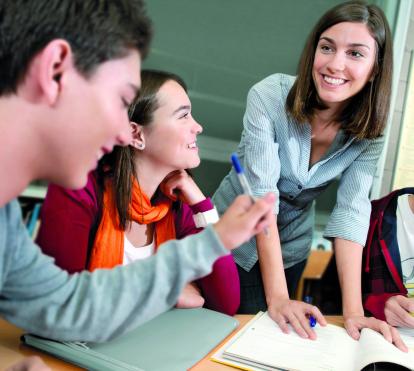
What does it mean to be a citizen in the twenty-first century? Where do I come from? Who lived in my city before me? What do we mean when we talk about globalisation? What is it like to be an immigrant? Where do my rights end and my neighbour's begin? What is sustainability? All these questions so closely related to the idea of citizenship are frequently made by many young people for whom the city is an open, dynamic and participatory space. Through its Citizenship programme, ”la Caixa” Foundation aims to stimulate the participation of young people in such issues as immigration, sustainability, human rights and globalisation in order to help them understand what it means to be a citizen in the twenty-first century. The Citizenship programme, included in the virtual educational community Educ@lia, enables secondary school students to take part in it either as a leisure activity on the Internet or as part of his schoolwork. Citizenship has thus been designed as a complementary educational tool that can be approached from different areas of knowledge. The first page of Citizenship is a map of an imaginary city that beckons the browser to take any direction. A map in permanent construction full of signposts leading to new roads. From this point on, he will create his own route, venturing further and further into the different links that the city provides. If the user so prefers, he can access the overall view that the map offers via the epigraphs "Diversity and Good Citizenship" and "Without Borders", which are found at the top. "Diversity and Good Citizenship" is the conceptual focal point of this programme, a venue that has been specially devised for classroom use. By accessing this first screen, we are presented with a series of hypertexts such as "Building Personal Identity", "History of the Cities", "Population and Sustainability", and so on, which in turn will take us to other links. For example, by clicking on the epigraph "Cultural Communities", we can access the "Multicultural Calendar" section, a work proposal for setting up the front page of a newspaper from three page make-up models. This activity involves choosing a date and filling in the empty spaces with the celebrations that will take place on that day. The user can either write the reports himself or employ information found at other web sites on the Internet. If we access the epigraph "Without Borders" we shall find some essential components of the contemporary concept of citizenship, such as "Alienage Law", "Solidarity", "Human Rights", etc. The map also offers the chance to discuss the very concept that gives the programme its name in "Citizenship?". Any given route on the map can include this reflection.Citizenship in the classroomThe Citizenship programme has been devised bearing in mind the collective dimension of its use. In the school environment, the individualised use of Citizenship achieves its maximum degree of usefulness when it results in a group proposal. Thus, what the teacher does between offering the programme and seeing how students use it is of vital importance.To help teachers, ”la Caixa” Foundation has issued an educational guide which contains a CD of the web site, presenting the classroom options that Citizenship provides. The guide contains two texts, one by Federico Mayor Zaragoza, president of the Foundation for a Culture of Peace, and the other by Joaquín Arango, lecturer in Sociology at the Complutense University of Madrid and director of the Research Centre on Citizenship and Migrations of the Ortega y Gasset University Institute.Educ@lia SecondaryCitizenship is just one of the programmes offered by Educ@lia, the virtual educational community of ”la Caixa” Foundation aimed at spreading knowledge and enlarging the capacity for analysis, reflection and constructive criticism of its members (young people, families and teachers). While it is true that Educ@lia started out as a teaching tool for primary education, it has recently expanded, adding a division with specific contents for the secondary school level. Citizenship is part of the latter, which includes monographic web sites on subjects of interest like AIDS or the euro. This division geared towards the secondary level has three basic sections: "Current Events" (the most dynamic section on the web site, where young users can find subjects of interest related at all times to what is happening in the world); "Topics" (monographic web sites, which, like Citizenship, deal with social issues); and finally "Resources" (documentary sources, games, etc.).